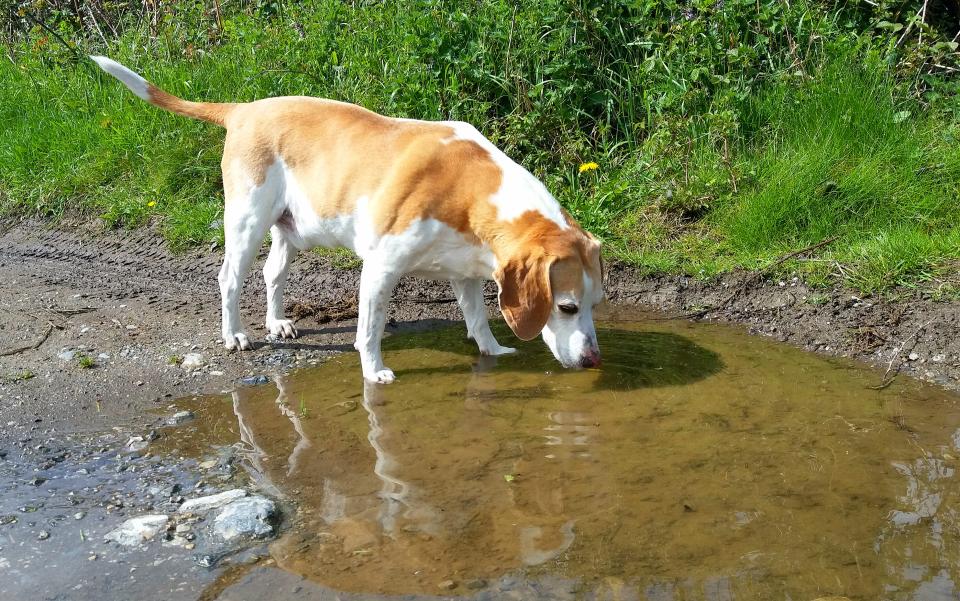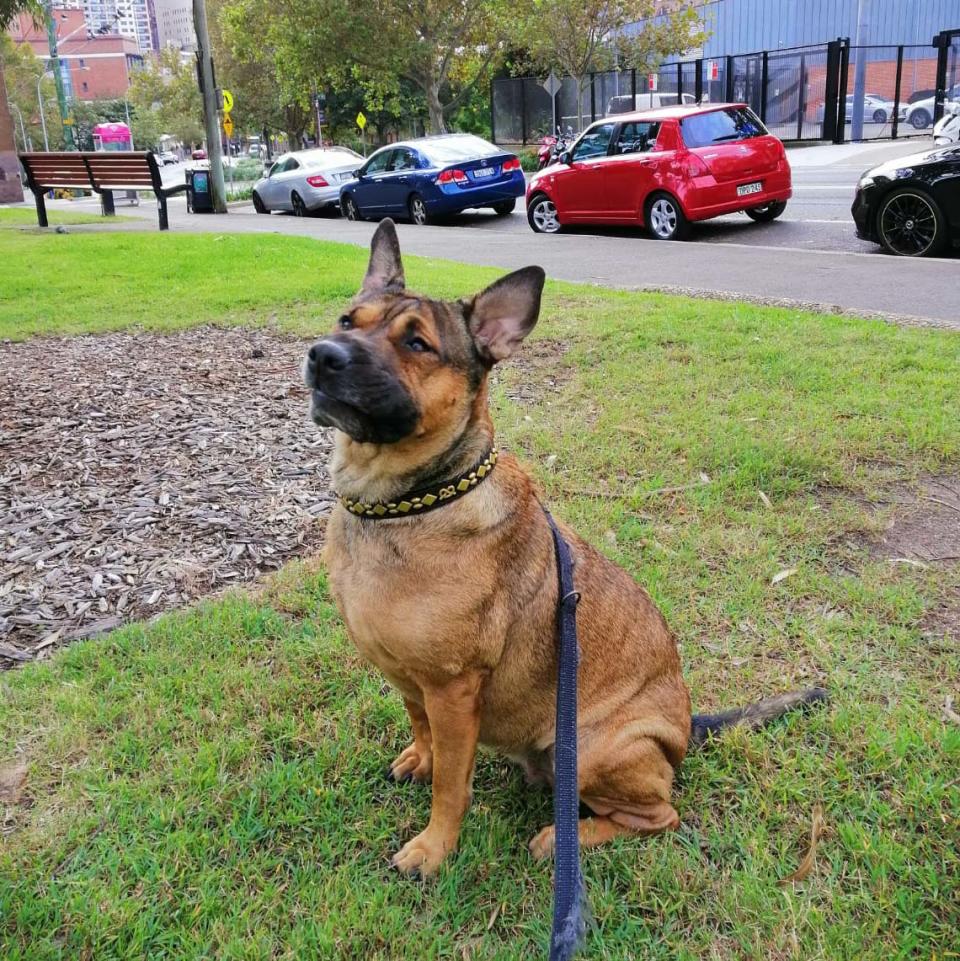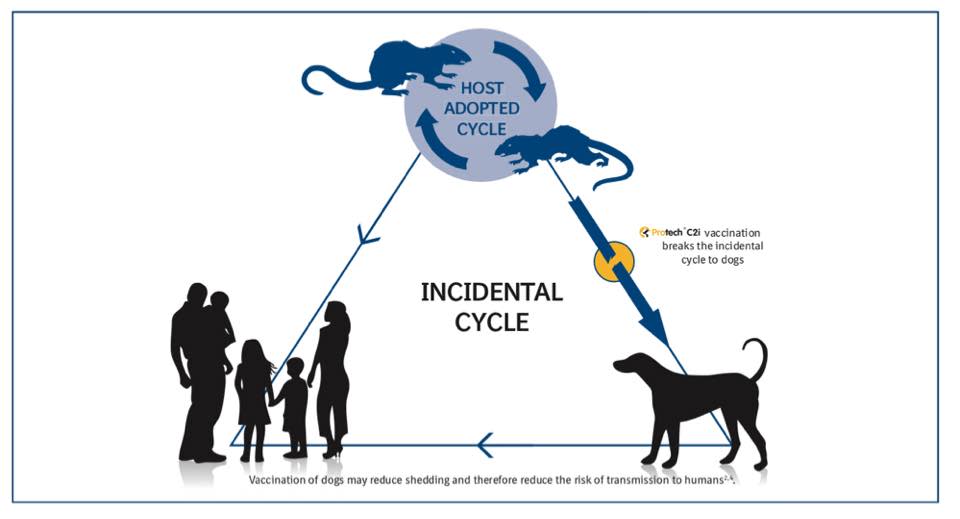Vets' urgent warning over rare virus that's killing Sydney dogs
A rare disease that’s fatal to dogs and can be transferred to humans is believed to be responsible for causing the deaths of five dogs in Sydney.
The five fatalities, which occurred in the inner-city, were a direct result of the dogs contracting leptospirosis, a rare disease that’s spread through animals coming into contact with puddles infected with rat or mice urine.
Vets and animal health experts have also issued warnings in the past week to animal owners in Sydney.
Vets on Crown in Surry Hills posted the grim warning after several cases of leptospirosis were observed in the Surry Hills, Redfern, Darlinghurst and surrounding areas.
“[We] are urging everyone in the Surry Hills and the surrounding areas to consider getting your pets vaccinated against leptospirosis and to encourage your friends and family to contact their local vets to enquire about getting their pets vaccinated too,” the clinic posted on Facebook.

Potts Point Vet also issued a warning after two cases of the disease in Surry Hills, adding that both dogs had only frequented the one park — Ward Park on Devonshire St.
“Leptospirosis is a disease caused by infection with bacteria of the genus Leptospira. These organisms prefer warm, moist, alkaline environments and are uncommon in Sydney,” the clinic said on Facebook.
“Leptospira can remain in the environment through infection of reservoir hosts, most commonly rats, which then pass the organisms in their urine.”
Potts Point Vet went on to say that environmental flooding, like as what had been experienced in Surry Hills in recent months due to extensive ground disturbance from the light rail project, also played a large role in the creation and spread of the deadly virus.
In a statement to Yahoo News Australia, the City of Sydney Council said it was monitoring the issue closely and encouraged pet owners to contact their local vet with concerns.
“Rats are an issue in every major city across the globe,” a council spokesperson said.
“An unprecedented number of major demolition and construction works have been occurring throughout the City of Sydney, stirring up rat populations and leading to increased rat movements.”
The spokesperson added that the City Council now requires all developers to provide a pest management plan ahead of major construction work.
‘I’ve lost my girl’
Among the dogs to fall victim to the disease was Allan Quinnell’s support dog.
Nine-year-old Bu died on July 2, five days after she began showing signs of illness.
Her distraught owner told Yahoo News Australia that he believes the American staffy-shar pei cross had become sick after walking down the alleyway that backed onto their apartment block in Darlinghurst.
“She was my girl. She was my care dog,” he said.

Mr Quinnell, a former firefighter who was forced to retire after struggling with post traumatic stress disorder [PTSD] and other mental health issues, said the pair had walked the same way every day for over a year.
Throughout that time, the alleyway had been infested with rats attracted to the abundance of rubbish.
“It’s always had rats in it and a prolific number of rats, and not only that, there would be garbage that had been left in the laneway, sometimes for several days with food scraps spilling out.
“You would walk down the laneway and there would be rats jumping out.”
Before losing Bu, Mr Quinnell had been careful whenever they took the back access to their home. She was kept on a leash and he would clean her paws with antibacterial wipes the moment they got in the door. Yet, he can’t help but blame himself for her death.
“I’ve lost my girl and, you know, she meant the world to me and now I’m without that support,” he said.
“I’m shattered by it... I’m just struggling with the whole thing. I feel like Bu died needlessly.”

The vet that tried to save Bu told Mr Quinnell she was the third case the clinic had encountered of leptospirosis in recent months.
“Council need to clean up their act. The rubbish that was left laying around was disgraceful,” Mr Quinnell said.
“I don’t want to see any other dogs die. I don’t want to see anybody going through what I’m going through.”
Push for council to do more to protect pets
Along with Bu’s grief-stricken owner, canine health and nutritionist Phivo Christodoulou is calling for action from Sydney City Council for better hygiene standards in the high-density inner-city areas where there is also a high number of restaurants.
“This was his support dog,” Mr Christodoulou said of Mr Quinnell. “He’s dealing with a lot of grief at the moment. He doesn’t know what to do without his dog — which [he relied] on for medical reasons.”
Mr Christodoulou, also known as Phivo The Dog Health Guy, added that the leptospira vaccine was not the solution to an alarming spike in animal fatalities, telling Yahoo News Australia that in addition to it only being between 60-80 per cent effective, it could also create a false sense of security among animal owners.
“What we don’t want is a mass hysteria where everyone’s running to vaccinate their dogs. It’s going to give them.. the false belief that they’re protected,” he said.
‘We need to push the council to clean the streets.”
“I believe that the councils responsible for overseeing the infected areas need to start a program to notify residents of the risks, and also put a plan together to get leptospirosis under control.”
He added that in the case of Bu, the dog was being walked in an alleyway where waste from restaurants was overflowing and creating an ideal environment for both rats and the disease to fester.
“Hygiene is imperative to health and reducing the spread of disease. I hope the council takes action,” Mr Christodoulou said.

“The scary thing is with this, is that in such a built-up area, it can be passed to humans.
“This is not just an animal issue, this is also a human health issue which needs to be addressed by improving hygiene in infected areas.”
A Sydney of City Council spokesperson told Yahoo News Australia additional rat baiting stations had been placed in response to community concerns. adding that residents who had noticed an increase in rat numbers were urged to contact the City Council.
“Unfortunately, rat activity can’t be completely eradicated and there will always be some public areas that require further baiting,” the spokesperson said.
“The City has a comprehensive pest control program that involves installing and monitoring bait stations in public places.
“There are currently around 430 bait stations in public areas across the City, using more than 50 kgs of bait per week.”
Leptospirosis occurs worldwide but is far more common in tropical regions.
It can be transmitted either directly, through contact with infected tissue or bodily fluids, or indirectly through contact with contaminated soil, water or food.
The most common route of infection is due to urine contaminated water, typically from wild rats.
Yahoo News Australia has contacted Sydney City Council for comment.
Clinical signs of leptospira:
vomiting with bile
loss of appetite
dehydration
harsh and dry coat
pain and stiffness in sacral area
abdominal pain
ulceration of mucous membranes
dark brown or blood-tinged stools
greenish bile in stools
coughing
dark, bile stained urine
Do you have a story tip? Email: newsroomau@yahoonews.com.
You can also follow us on Facebook, download the Yahoo News app from iTunes orGoogle Play and stay up to date with the latest news with Yahoo’s daily newsletter. Sign up here.

